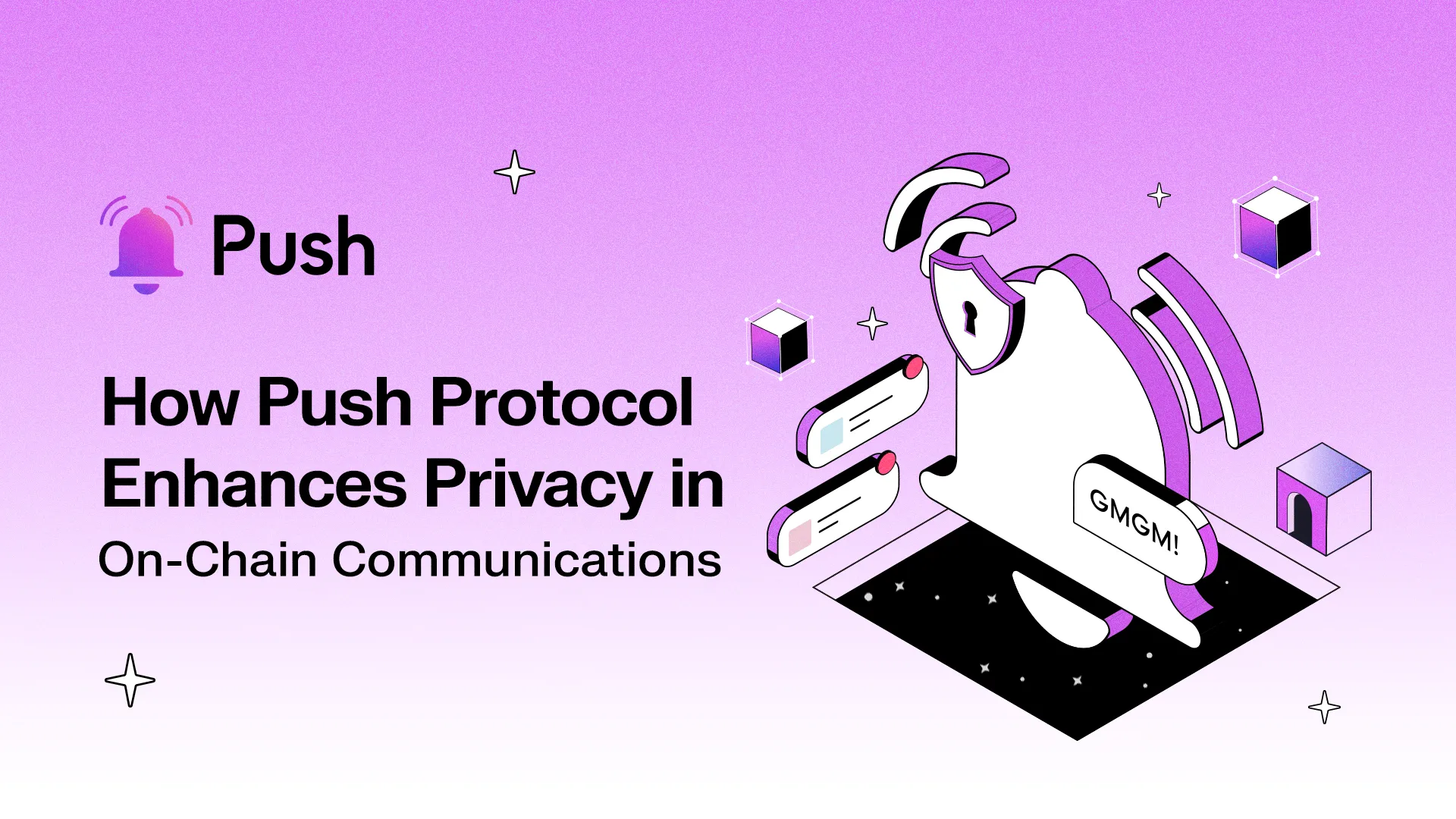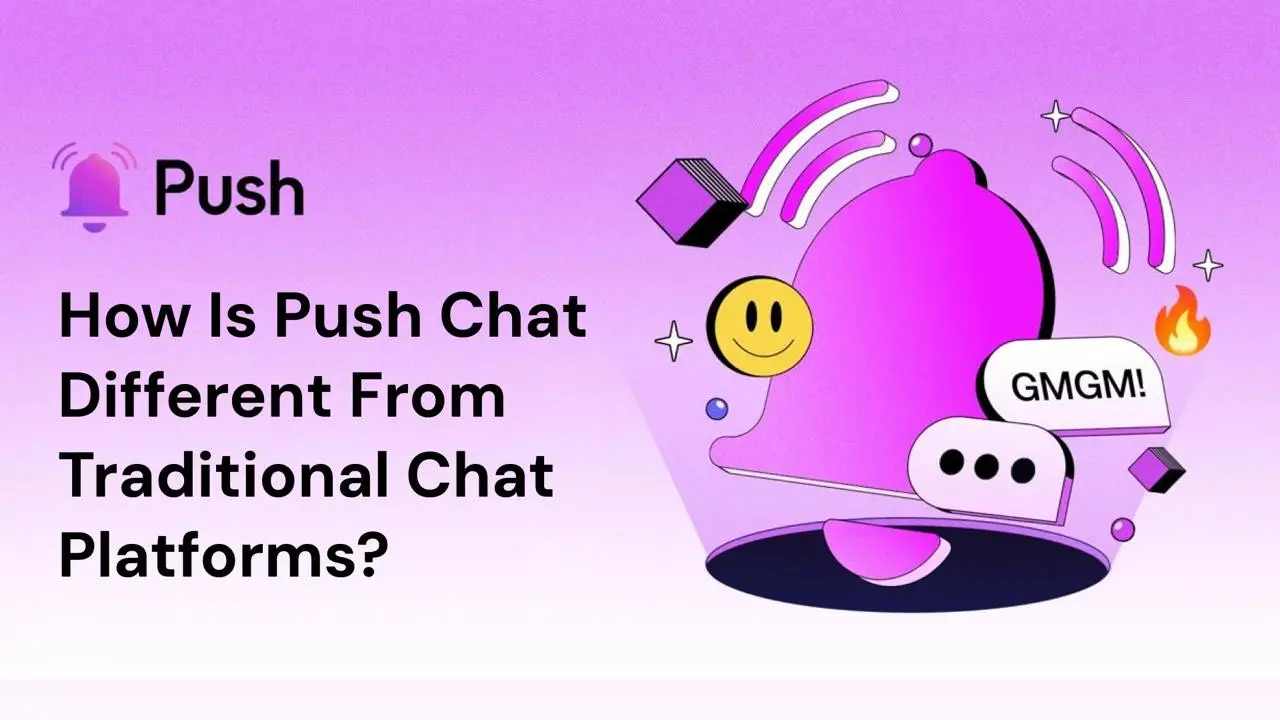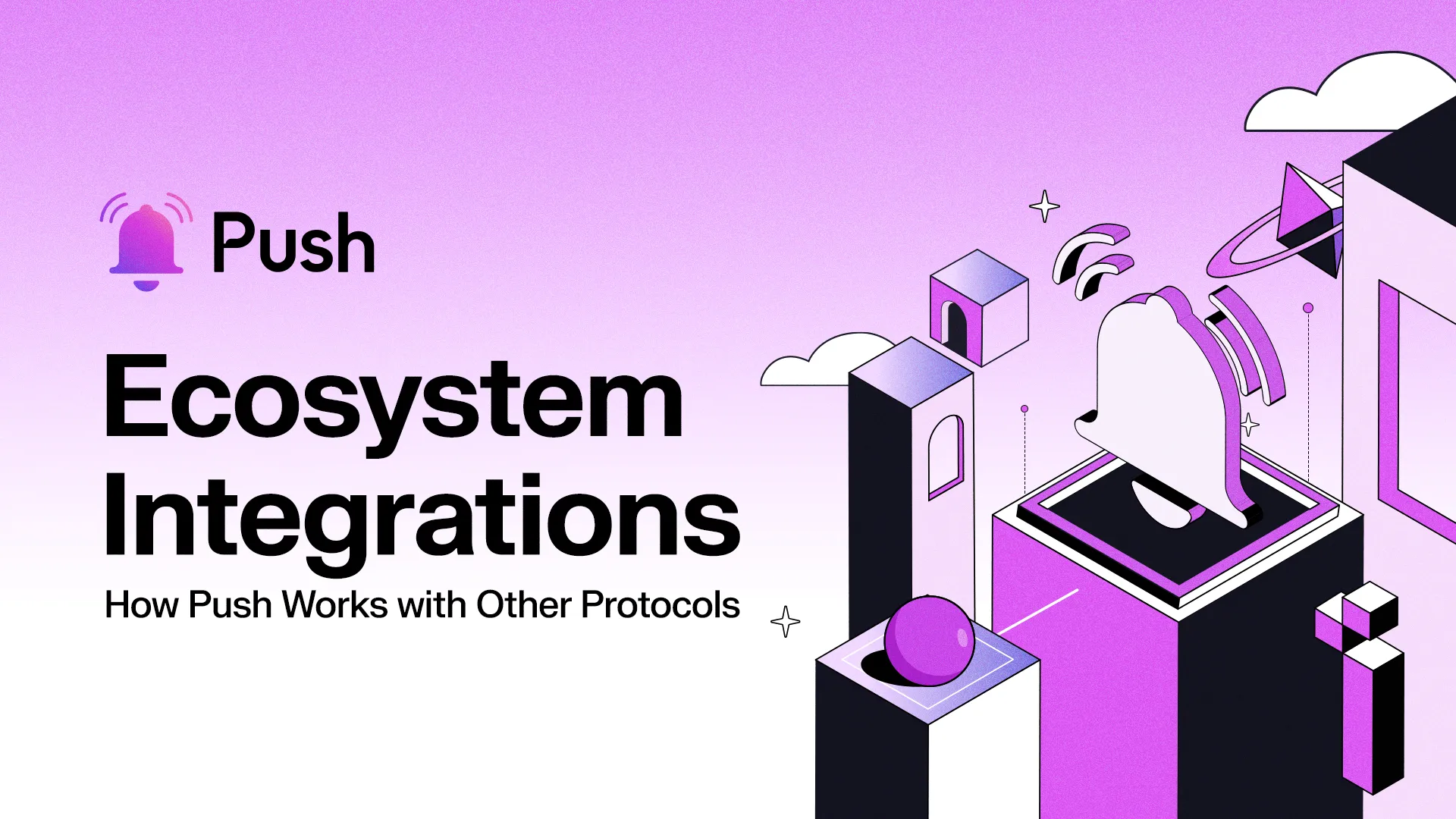
While privacy is fundamental to blockchain technology, communicating on-chain poses distinct challenges. Because wallet addresses are public by design, users face risks from unsolicited messages, data mining, and phishing attempts. This challenge requires a secure, private communication layer that preserves the decentralized nature of the blockchain. An effective solution must give users complete control over their data while allowing smooth, private interactions. Push Protocol addresses this need by enhancing privacy in on-chain communications without compromising usability or security.
End-to-End Encryption: Ensuring Message Privacy
Push ensures that every message exchanged between users remains private, leveraging robust end-to-end encryption. This encryption ensures that only the sender and recipient can access the content, effectively safeguarding sensitive information from prying eyes.
When users register with Push Chat using their wallet, a unique public-private key pair is generated. This method removes the need for usernames or passwords, ensuring privacy by design. The private key stays securely within the user’s wallet, while the public key allows others to encrypt messages intended for them. For example, when User A sends a message to User B, the message is encrypted with User B's public key, ensuring that only User B—holding the corresponding private key—can decrypt and read it.
This process, powered by asymmetric cryptography, guarantees that no third party can intercept or decipher the communication. By placing security and privacy at the core of its design, Push empowers user privacy, even in a decentralized environment.
PGP Key Security: Your Private Key, Your Privacy
Push takes a decentralized approach to key management by generating and encrypting PGP keys locally on users' devices. These keys are protected using advanced encryption methods, ensuring only the user can access them. These private keys never leave the user’s control, ensuring that their communication remains secure. This commitment to decentralization ensures that privacy is not a feature to be toggled but a default guarantee for all Push users. Think of it as having your personal safe: only you hold the key, and no one else, not even Push, can open it.
Anonymous Communication: No Personal Information Required
Unlike traditional platforms that require personal identifiers like email addresses or phone numbers, Push enables wallet-to-wallet messaging. This innovation allows users to communicate anonymously, relying solely on their Web3 wallets for identity. By removing the need for personal identifiers, Push eliminates the common risks of data breaches and misuse of personal information. This feature not only enhances privacy but also aligns with the principles of pseudonymity and anonymity by offering valuable protections and can be used to enhance privacy and security on the blockchain.
Decentralized Storage with IPFS
Push stores messages securely on the InterPlanetary File System (IPFS), a decentralized storage solution that ensures data integrity and security. Using IPFS, Push ensures that data is distributed across multiple nodes, making it nearly impossible for hackers to tamper with or breach.
Push’s decentralized infrastructure minimizes security risks like data breaches while providing faster access to data and greater resilience. This approach ensures that even if one node fails, user messages remain accessible and secure, offering uninterrupted service.
Spam Prevention for Better Privacy
Spam and unwanted messages can be significant privacy concerns. Push mitigates this with chat requests and opt-in notifications, empowering users to control who can contact them. Chat requests allow users to preview messages before accepting them, while opt-in notifications ensure that only chosen channels can send updates. This spam prevention mechanism ensures that users’ communication remains meaningful and free from unnecessary intrusion.
Privacy in NFT and Token-Gated Groups
Push goes beyond one-on-one messaging by enabling private group chats for NFT and token holders. Access to these groups is determined by ownership of specific NFTs or tokens, creating exclusive spaces for members. This functionality allows users to participate in exclusive communities without revealing personal information. Whether it’s an NFT club or a DAO working group, Push ensures that privacy is maintained across all interactions.
Cross-Chain Privacy
As Web3 grows increasingly multi-chain, Push ensures seamless and private communication across blockchain networks. This is achieved using advanced encryption and decentralized architecture, ensuring messages remain secure no matter the blockchain. This cross-chain capability fosters decentralized collaboration while upholding privacy principles in diverse ecosystems.
The Future of Onchain Communication
Push is setting new standards for privacy in on-chain communications. With powerful end-to-end encryption, decentralized storage, and anonymous messaging, Push delivers secure communication for all users. As Web3 grows, Push remains dedicated to empowering users with privacy tools that make their experience better.
In a world where data is currency, Push protects what matters most—your privacy.


